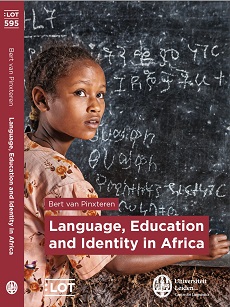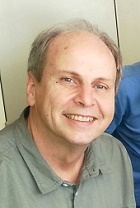Seminar: Language, education and identity in Africa
Primary tabs
 This event is being organised in the framework of Africa 2020. It will take place both online and physically in Leiden. All registrees will receive a link to the online platform one day before the start of the event.
This event is being organised in the framework of Africa 2020. It will take place both online and physically in Leiden. All registrees will receive a link to the online platform one day before the start of the event.
What have been the effects of the colonial era on Africa and what is the way forward? Those are questions that many have asked, and that also form the starting point of Bert van Pinxteren's dissertation, 'Language, Education and Identity in Africa', which he will defend on Thursday 16 September and discuss during this seminar on Friday 17 September.
Van Pinxteren looks for answers in the works of Vansina and Prah, who hold that the old cultural traditions in Africa have been destroyed in colonial times. They also maintain that new cultural traditions are currently taking shape, based in part in African languages. The book based on the dissertation uses new insights gained from Hofstede’s approach to cross-cultural psychology to show that such a process is indeed happening on the continent and that it will be key to Africa’s decolonisation. An extended and revised version of the book is due to be published later this year by the ASCL.
3. "In order to decolonise education and move towards ‘education for all’ decolonising the curriculum is not enough. It will also be necessary to question the top-down model of education that was inherited from colonial times". Prof. Felix Ameka will introduce his ideas on decolonisation of education and its relevance for the medium of instruction. Several discussants will provide feedback before opening up the floor.
Time schedule
Speaker
 Bert van Pinxteren has an MA in adult education and community organisation from the University of Amsterdam (1981) and a Research Master in African Studies from Leiden University (2018). His PhD research was carried out with the Leiden University Centre for Linguistics (LUCL). Bert has worked at a number of international NGOs, notably on environment and development issues. After spending a period working in the sector of Internet for research and education he ended his career as a Senior Programme Officer at ActionAid. He has published several book chapters, as well as articles in scientific journals.
Bert van Pinxteren has an MA in adult education and community organisation from the University of Amsterdam (1981) and a Research Master in African Studies from Leiden University (2018). His PhD research was carried out with the Leiden University Centre for Linguistics (LUCL). Bert has worked at a number of international NGOs, notably on environment and development issues. After spending a period working in the sector of Internet for research and education he ended his career as a Senior Programme Officer at ActionAid. He has published several book chapters, as well as articles in scientific journals.

